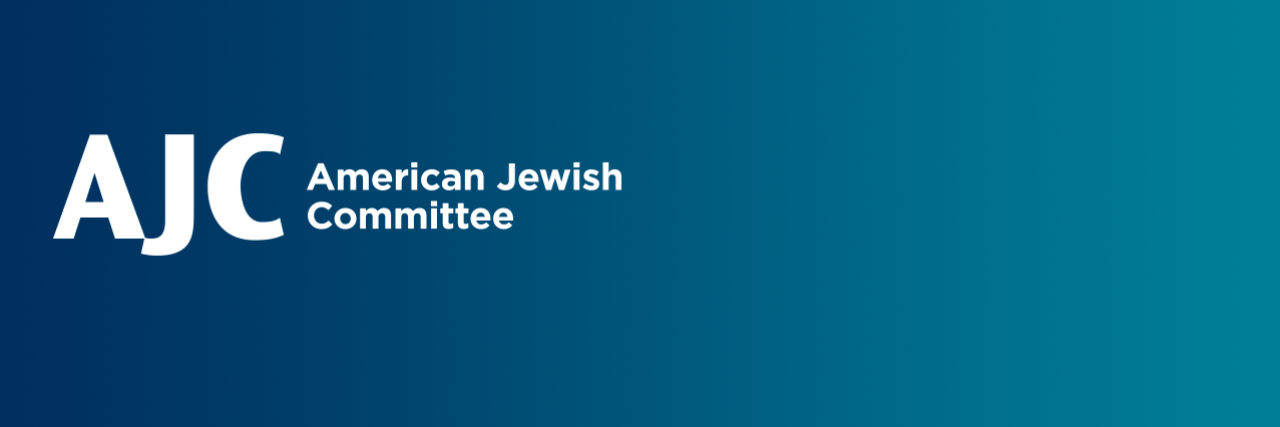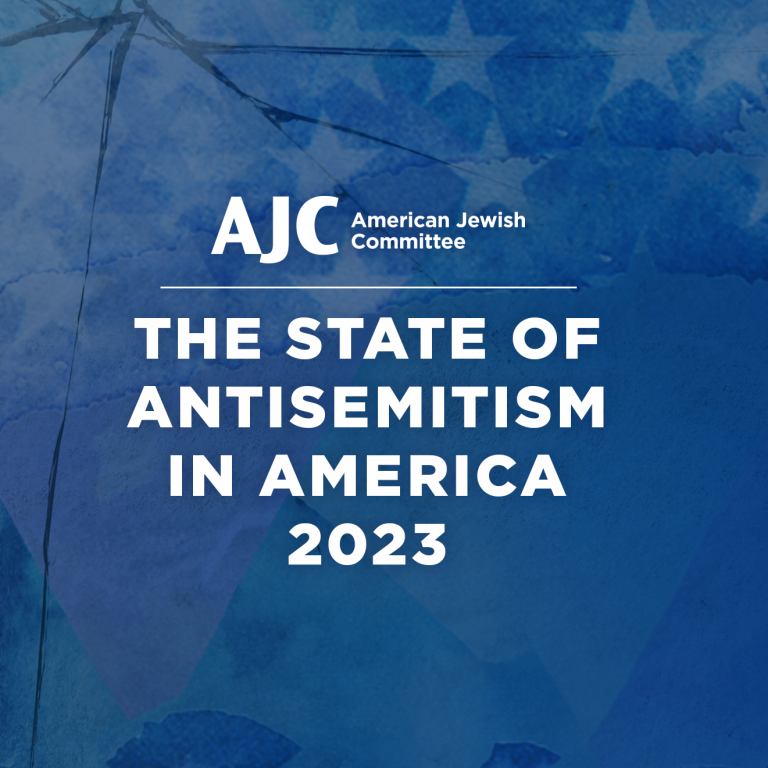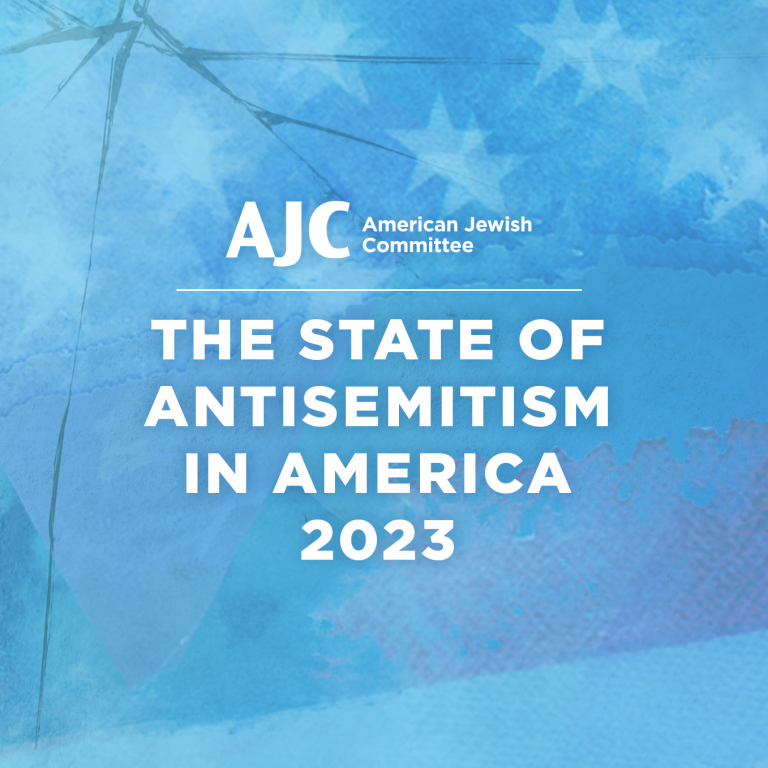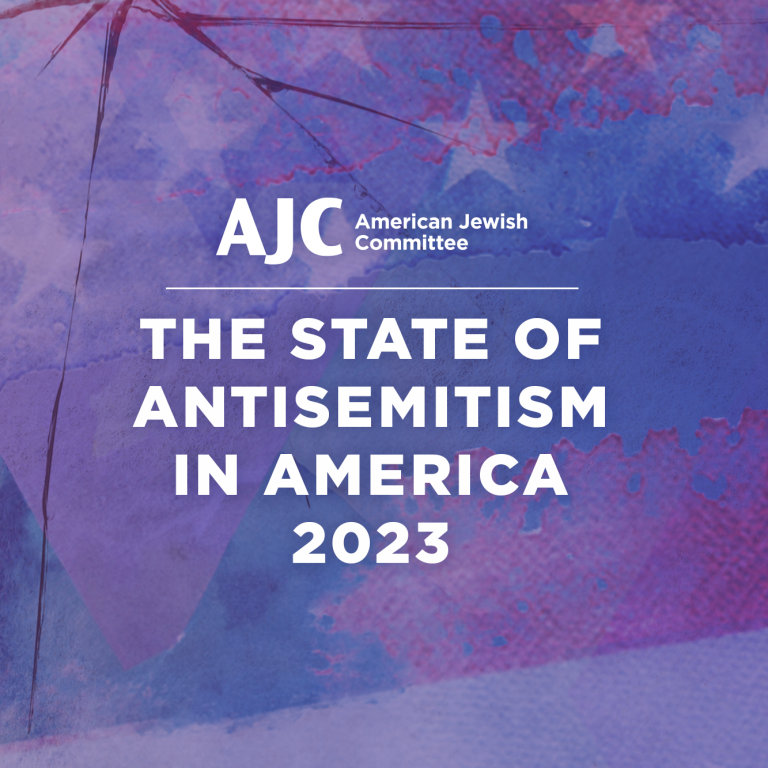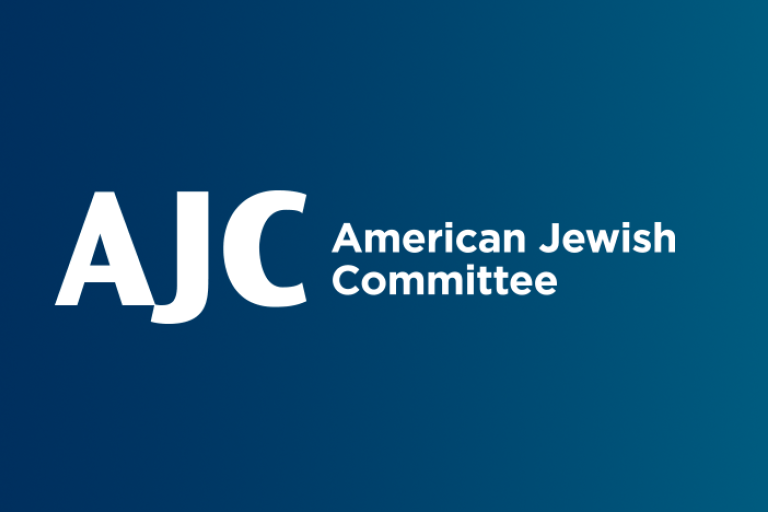March 20, 2024
The following column from AJC New York Assistant Director Marisa Bearak appeared in the Staten Island Advance.
In the aftermath of the Oct. 7 Hamas-led terrorist attack and massacre in Israel, American Jews were engulfed in a maelstrom of grief, anger and alienation. Now, five months into the Israel-Hamas war, Jewish New Yorkers stand at the forefront of an escalating societal crisis.
The impact is undeniable – almost half of the anti-Jewish hate incidents reported to the NYPD in 2023 occurred post-Oct. 7. The first month of 2024 saw 31 out of 45 reported hate crimes targeting the Jewish community. Disturbingly, between 2019 and 2023, New York City documented 1,146 confirmed anti-Jewish bias incidents, comprising nearly half of all reported hate and bias incidents during that period.
These staggering statistics only scrape the surface of the pervasive unease gripping American Jews, as revealed by the American Jewish Committee’s State of Antisemitism in America 2023 Report. A stark picture emerges — 63 percent of American Jews now feel less secure in the United States, a significant increase from 41 percent in 2022 and 31 percent in 2021. In 2023, one in four American Jews reported being the target of antisemitism, with younger individuals (aged 18-29) disproportionately affected.
Look no further than the alarming incident on Feb. 12, where a 25-year-old Jewish man was brutally attacked with a metal bat in the Mariners Harbor neighborhood of Staten Island, for a poignant reminder that the threat is not theoretical but manifests in horrifying acts of violence. The attacker, allegedly fueled by anti-Jewish sentiments, targeted a victim wearing a yarmulke.
The scope of this crisis extends well beyond the Jewish community, as evidenced by the findings of AJC’s report. A majority of the general population, 74 percent, acknowledges antisemitism is a serious problem in the U.S., and more than half, 56 percent, believe it has escalated over the past five years.
While the statistics alone paint a dire picture, the consequences of this rising tide of hate are palpable in the daily lives of American Jews. It's not just about numbers – it's about the pervasive fear that accompanies simple acts like walking down the street or going to school or work.
According to AJC, nearly half of American Jews changed their behavior out of fear of antisemitism in 2023, which includes publicly wearing items that would identify them as Jewish, such as the yarmulke the young victim in the Staten Island attack was wearing.
Disturbing incidents have unfolded in our schools as well, with Jewish students and staff being targeted for vocal or even purported support for Israel in its war against a terrorist regime. One cursory internet search would propagate a series of alarming headlines ranging from the city’s public high schools to its top universities.
The erosion of a sense of safety and belonging is profound for the 1.5 million Jews living in New York. And while it should be enough that Jews are experiencing tangible hate to inspire collective action, it’s become glaringly clear that it isn’t.
During a press conference at Staten Island Borough Hall after the Feb. 12 attack, I warned the room packed with elected officials, law enforcement and faith leaders that, if before Oct. 7 antisemitism was a slow-burning fire, it’s now a five-alarm blaze that requires all of us to douse its flames.
But it gives me hope, guarded as it may be, that AJC’s report states that nine in 10 Americans, spanning both Jews and non-Jewish adults, believe that everyone shares the responsibility of combating antisemitism.
After all, antisemitism is not an isolated issue. It serves as a barometer reflecting the broader state of society, necessitating a united front to dismantle an interconnected web of prejudice.
So, let’s get to work. All of us, together.
